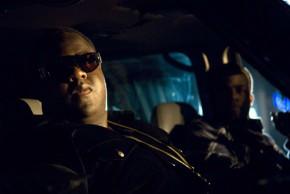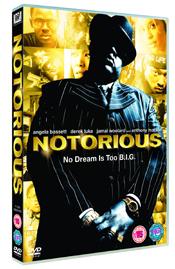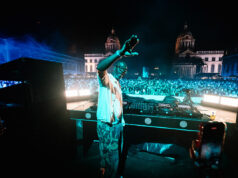 Following the celebration of Martin Luther King’s birthday, the world bore witness to the inauguration of the first Black president of the United States. For a country where even race can dictate what you are allowed to dream, it is a monumental achievement that will have its effects felt and examined for several generations.
Following the celebration of Martin Luther King’s birthday, the world bore witness to the inauguration of the first Black president of the United States. For a country where even race can dictate what you are allowed to dream, it is a monumental achievement that will have its effects felt and examined for several generations.
No stronger theme binds contemporary Americans today than the power of creating and achieving the dream of success in this country. Variations of this theme have been explored in every artistic medium, each defining a generation’s experience: From taming the “Wild West” to the immigrant waves passing through Ellis Island to the vision of reality television, where you can go from ordinary to extraordinary by a televised vote. This is just a small section of the American experience. The players change daily, but the “dream” remains the same, a theme that takes center stage with the release of the film “Notorious.”
Within the life of one young man, you encompass a microcosm of the contemporary American experience. He achieved international fame as “The Notorious B.I.G.,” but Christopher Wallace was the only son of an immigrant single mother. Born and raised in Brooklyn, he began childhood honoring the strict lessons of his mother Voletta by getting a good education and contributing to society. At some point in his teen life, he also became a young father. When he finally finds his voice and story, it is through music. Yet, Wallace would continue to make decisions that would compromise his own values, enduring many painful and, ultimately, tragic consequences.
The life and death of Christopher Wallace reveals the many faces of the dream, both positive to many and dangerous to others. His music provided a connection to people who felt he was living out their own street life. To others, he perpetuated the kind of imagery that failed to elevate the race. That is the challenge presented by the filmmakers of “Notorious” in their bid to not only create an engaging cinematic portrait but to humanize Wallace’s life for those who think they know the rapper through his music.
“I think what makes Christopher Wallace so interesting,” screenwriter Reggie Rock Bythewood said, “is that sometimes he seems to represent the worst of what people think about young black men; yet on another level, he symbolizes the best of young black men – as dutiful sons, attentive fathers, loyal friends. I hope the film’s exploration of that duality will challenge’s peoples perspectives – both of Christopher Wallace and of ourselves.”
The duality commented upon by Bythewood was a large part of the Wallace mystique, who was born “Christopher” but evolved into “Biggie Smalls” and further still as “The Notorious B.I.G.” The film’s examination of his relationships with former wife Faith Evans and rapper Lil’ Kim also provides a glimpse on how his personas contributed to the kind of music he would create.
“Who he was for Lil’ Kim was totally unique from who he was for Faith,” Bythewood continued. “How he was with each of them was also different from who he was to his mother. That was his appeal as a person, and it was also his genius as an artist. Women would hear one thing. The gangsters another thing, the hip-hop critics something else, and the average person listening to the radio would hear something else. But I think all of them agreed that he was one of a kind and that’s what we set out to capture.”
Co-screenwriter and journalist Cheo Hodari Coker added “Biggie was a genius at encapsulating entire moments of his life into a three and half minute song, and that’s the same trick I hoped to pull off in 119 pages as a screenwriter.”
Director George Tillman, Jr. commented that “audiences want honesty and authenticity.” With the film boasting the highest per screen average of its releasing weekend, it appears that audiences were eager to view the life Wallace, with “Notorious” grossing more than $20 million on only 1,600 screens.
“The most important things I was looking for in “Notorious” were the kinds of real performances that let the audience really get a look behind the surface,” Tillman concluded.
Casting the film was challenge enough, but add the reality of finding someone to represent Christopher Wallace, who stood 6 foot, 3 inches, weighed over 300 pounds. He was an imposing young man with a complicated past and a career that rivaled his physical largesse.
Enter Jamal Woolard.
A new face with a fledgling rap career (Woolard recorded under the name “Gravy”), reactions to his audition drew immediate attention. Casting associate Wendy McKenzie recounted her call to casting director Tracy “Twinkie” Byrd, saying, “‘We found him. It’s him!’ I felt it in my bones. He came at me with this attitude like ‘Yo! If Brooklyn found out I ain’t get this, it’s on you.’ That’s swagger.”
With the filmmakers engaged by the newcomer, the final test was to garner the approval from Wallace’s mother, Voletta Wallace. After viewing seeing hundreds of choices, Ms. Wallace had reasons to reserve judgment.
“Everyone from all corners of that globe came,” Ms. Wallace said. “I looked, I laughed, I smiled, and I did not make up my mind until I met Jamal in person. The minute he opened his mouth, after he was gone I said to George (Tillman, Jr.), and Wayne (Barrow), “That’s Biggie.” He came in looking like Christopher, sounding like my son and had that whole attitude. That was it.”
Also born and raised in Brooklyn, New York, Woolard was already infused with the very spirit that was Wallace. Undaunted by his own lack of acting experience, to hear Woolard take on the vocal and physical aspects of Wallace revealed his own desire to deliver a performance that was as close to the real as possible.
“Right away, he took the responsibility of playing Biggie very seriously. Just like Jamie Foxx was Ray Charles, Jamal was Biggie,” said casting director Tracy Byrd.
Enduring four months of “Biggie Boot Camp,” Woolard worked hard with acting coach Mimi Lieber, as well spending countess hours viewing archival material on Christopher Wallace. He would also gain 45 pounds for the role in addition to evolving his own rapping voice to match the commanding tone of Biggie’s baritone.
A nice symmetry was found while interviewing Woolard at the Legacy Recording Studios in New York, which is where Christopher Wallace recorded his first album, “Ready to Die.” In meeting Woolard, you are instantly greeted by an effortless warmth and sincerity. He would often punctuate his responses with a huge smile, which seemed that much brighter in comparison to the requisite “bling” he was sporting at the time. Still, you can also feel how proud he is of having the chance to invade the space of Wallace’s legacy. They shared a lot more than Brooklyn in common, which is why Woolard knew just what it would take to play him.
“You can’t buy swagger,” he commented. “That’s a Brooklyn thing. You got to be born with swagger. I’m just a regular person making it happen. We’re from the same hood, and that helped a lot, and I know the struggle and I know how to rap. I hope when people see the movie, they’re going to be like, ‘he’s here.'”
Following is a bird’s eye view into the making of “Notorious” from the man who was tapped to play out a real B.I.G. dream on several fronts.
What was the moment when you found out you got the role like for you?
Jamal: I never really found out like that, like “Yo! You got the role! Yeah!” No not like that. I just kept working man and I felt the reward would come later. It was almost to the point where I didn’t care about the fame or the money or something like that. Just getting in that position to play him was more than enough. Anybody would love to be in my shoes right now to play B.I.G.
Are those size 14’s?
Jamal: I’m a 12, close.
At what point did Christopher Wallace become a full fleshed out performance for you? Was it through the acting or rapping required for the film?
Jamal: It was real to me through the rapping. Acting is just adding icing to the cake. Big was all and out bones in Brooklyn, that’s where he started. “Party and Bullshit” was the first record we ever heard Big kill it and we knew from there.
In talking with your cast mates and the filmmakers, all agreed there were three sides to Christopher. It is fair to ask, of the three, which was your favorite to become?
Jamal: The player side was my favorite side of Christopher. I think really trying to master Notorious was the hardest part because it still takes a lot to be B.I.G., it’s almost impossible to even be B.I.G., you know what I’m saying Acting like him was a privilege. We definitely had a sense of the same swagger. He was a little more flamboyant. I wrote a list of dislikes and likes. He taps into his anger in a whole another light, so I really had to take some time to get that. It took me and George (Tillman, Jr., director of “Notorious”) awhile to get that anger up.
Everyone close to Christopher from his mother, Voletta Wallace, to his former managers Wayne Barrow and Mark Pitts, are proud that your performance is as close to the real thing as you can get. Have you been able to let him go or is Christopher still with you?
Jamal: I definitely put enough work in it to bring him back to life, you know? I think people are always going to look at me like Big, you know what I’m saying? And then I’ve got a warm, big heart, and so did he. It’s a good thing, it’s positive.
What’s it like to be Christopher on stage and to have people reacting to that?
Jamal: When we were shooting I never noticed anybody in the room. I was focused on what I had to do. The only thing in my head was the script, what I could feel and go through and to make sure I do it right so Brooklyn could love it. I want the world to love it but at the end of the day I’ve got to go back home. I want home to stand up for me.
You have your life as rap artist. Talk about the power of rapping Christopher’s most known rhymes in front an audience.
Jamal: That’s what I love to do. That was my fun part right there. Doing the lyrics over, matching his voice, the cadence, the flow. D-Dot, really helped me out. Deric Angelettie from Bad Boy really put the icing on that.
The “Notorious” team featured the most important members of his life. How was it working and talking with all of the people involved with the project, beginning with his mother, Voletta?
Jamal: That’s right. That’s the best source to get it from. It’s the mother. She could tell you what he was doing, what he was not doing and everything else. Then I had Cease and I had Faith, you know what I’m saying? I had his girl and then I had his right hand man. I just had all the right support. But Mrs. Wallace was there every day and we had Wayne Barrow. He definitely stayed on my back and Mark Pitts, you know, definitely in a good way.
Did Ms. Wallace ever take you aside and say, “No, that’s not what my son would have done?”
Jamal: No, she never took me aside to say, “No,” but always to say, “I just wanted to tell you, ‘Wow!'”
Why do you think it is important to have Christopher’s story told now?
Jamal: It’s time! People on the streets; everybody wanted to know his story. It’s been too long without a story, and his music still plays like it was yesterday. That’s the crazy part. His music is playing every day, like it was yesterday. It’s still in heavy rotation. We have to get this out. Christopher Wallace the man, the world needs to know about him. They want to know.
He lived many lives in his 24 years. Do you feel there is a positive message in such a complicated story?
Jamal: I don’t ever get into the controversy side but as far as the film goes, there’s a lot of positive in there because he was a good dude. He was just trying to make his way in life and we all have problems. We all have the struggle, we all have to make ends meet, and that’s what he was trying to do. When he had his daughter, he was just trying to find a way to make more money. He wanted to live a different lifestyle. When he had seen people with nice cars and nice houses, that’s all he wanted for his mother. He wanted to take care of home. You’ve got to remember where he comes from. At seven years old, his father dropped a hundred dollars and the just got up and left without fighting. His mind frame was made up.
But he made some really bad decisions.
Jamal: We all make bad decisions. Every person in the world that sees this movie has made bad mistakes in their life. It’s about being a man and being a man, you have to make the right choices and take responsibility for longevity. I think that he and Pac both were in the same shoes and living for the moment instead of living for longevity and thinking it out.
No matter the situation, he did have a natural charm that diffused some of the harder edges.
Jamal: Big was just a man. The love, his swagger was crazy, like how could you not love him? What he would do, man! He’s just a jokester. He would just know how to charm you right out of your shoes.
Rap and hip-hop have changed in the years since Christopher Wallace left us. Do you think he still carries that influence with artists today?
Jamal: Where do you think they get their style? Where do they get that sound? Where do you think the ice came from? The first Rolex was B.I.G. So where are you getting your shiny style from? Where are you getting your suits? When Jay-Z did the button up, everybody wanted to button. Nothing to take from Jay-Z, but you know Big was doing his thing.
What do you want people to walk away with after viewing “Notorious?
Jamal: Let’s not forget B.I.G. Let’s not forget Christopher Wallace. Let’s go back and listen to that music. Let’s pay homage. Let’s make sure we understand the man Christopher Wallace because he deserves that. His family deserves that and that’s what I was shooting for. At the end of the day, I was working for Mrs. Wallace; I was working for his kids; and I was working for his family.
What’s next for you, Jamal?
Jamal: Don’t know, just hope all good things.
In the end, what did you learn from this first major experience in front of a camera, as an actor and as a man?
Jamal: Learning, learning and becoming a man. Yeah, definitely becoming a man. And using a film as a blue print to not make the same mistakes. That’s the most important part.
Notorious DVD and BD – Out to buy June 22nd and pre-order now from www.play.com. To be in with a chance to win a copy of Notorious email your name, address and contact number to [email protected]
About Notorious Blu-ray and DVD
 Both DVD and Blu-ray formats have the exciting addition of 6 featurettes and 10 deleted scenes. The Blu-ray disc has something extra special called the ‘Trivia Track’. The trivia track is a special feature that you need to activate whilst watching the film. Once activated, it displays information on whatever track you are listening to during Notorious. Viewers can create their own playlist of their chosen favourite songs and that playlist links to iTunes where you can then actually purchase the music. On top of that, the Blu-ray also has the addition of the ‘Life After Death: Making Notorious’ (45 mins) feature
Both DVD and Blu-ray formats have the exciting addition of 6 featurettes and 10 deleted scenes. The Blu-ray disc has something extra special called the ‘Trivia Track’. The trivia track is a special feature that you need to activate whilst watching the film. Once activated, it displays information on whatever track you are listening to during Notorious. Viewers can create their own playlist of their chosen favourite songs and that playlist links to iTunes where you can then actually purchase the music. On top of that, the Blu-ray also has the addition of the ‘Life After Death: Making Notorious’ (45 mins) feature
www.notorious-movie.co.uk












